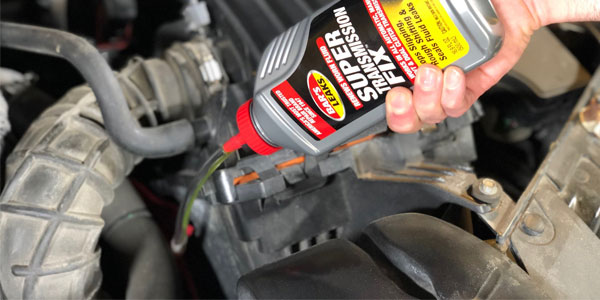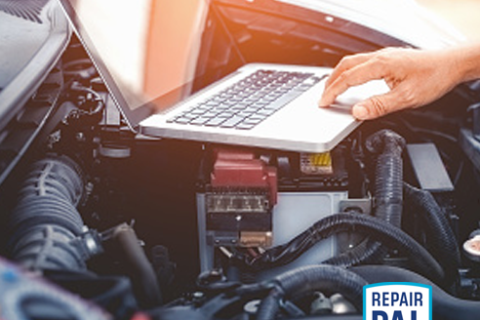Signs You May Need Transmission Repair
Transmission Repair Services
The transmission is one of your vehicle’s most critical and complex parts. It is responsible for taking the engine’s power and transmitting it to the drive axels through the use of different gears. When your transmission begins to slip or fail, it is almost always a cause for concern. Once you have decided that your transmission needs some help, you will need to decide on the three options for repair, rebuild or replacement. We service automatic, manual, and 4×4’s with our master certified transmission specialist standing by, and we also offer box truck transmission repair and some RV transmission repair.
Transmission Repair
This is typically the lowest priced option and can be applied if there are only minor issues with the transmission
Other problems such as a clicking or whining noise, gear slipping, missing forward or reverse, and delayed or erratic shifting may also be due to some similar problems such as a defective solenoid or low fluid levels. However, they might also be due to more serious issues, which brings us to the next option in transmission repair.
If the transmission has enough damaged or worn parts, then a complete rebuild might be necessary. In the event of a rebuild, the entire transmission is removed from the car, taken apart and fully inspected. Worn, defective, damaged or failed parts are removed and replaced with fully functional quality parts. The transmission is then reassembled and installed back into your car. Transmission rebuilds require specialists as it is a custom process for each unique vehicle.
Remanufactured or Replaced Transmission
In some cases, the entire transmission must be replaced. Depending on the vehicle, there may not be any brand new transmissions available, so instead, you will be getting a remanufactured or refurbished transmission. In a replacement job, you will be getting a full transmission with all parts replaced and brand new. This is generally done in a factory setting and not at the closest transmission shop

Things To Consider When Choosing The Right Transmission Treatment For Your Customers
Of all the things that can go wrong with a customer’s vehicle, a transmission problem is often one of the most dreaded. That’s because the cost of a transmission rebuild or replacement can run up to $4,000. When faced with a bill this big, many owners of older vehicles decide to start looking for a new car rather than fix the transmission in the current one.
But not all transmission trouble has to break the bank or result in the end of a vehicle’s life. Depending on the severity of the problem, you might be able to save your customer thousands of dollars by recommending a chemical repair product designed specifically for transmissions.
But which one? There are a number of transmission stop-leak and repair products on the market. Some are designed specifically for automatic transmissions or manual gear boxes. Others were developed to take on the complexity of continuously variable (CVT) or dual-clutch (DVT) transmissions. Additional considerations when choosing the right product include evaluating exactly what’s wrong with the customer’s transmission. What symptoms are they seeing? Low transmission-fluid levels and puddles under the vehicle? A warning light? Slipping, jerking and shudder?
Reading product labels or even visiting the manufacturer’s website can help you choose the right product to recommend. Or you can save your customer time and money by recommending an all-in-one product that stops leaks and improves shift performance on most cars, trucks and vans regardless of transmission.
Repair Shop Partner
There’s a lot of uncertainty surrounding car maintenance and repairs. Many drivers are unaware of when specific tune-ups and repairs are necessary, so it’s natural to doubt a mechanic who says your car needs work when it seems to be driving just fine.
TRUSTWORTHY & COMPETENT
Everyone wants a mechanic who does the job right at a fair price. Auto repair shops that partner with CarMax are routinely screened for quality, training, tools, and pricing. This gives you peace of mind, knowing that when you choose a trusted CarMax partner, you’re getting the best service at the best rate.
INDEPENDENTLY OWNED
All participating CarMax partners are independent auto repair shops. When you take your car to one of these locations, you’re supporting a local business in your community. Plus, there are over 2,600 shops in the RepairPal Certified Network, making it the largest nationwide trusted network of auto repair shops in the US. Whether you’re in La Habra or your car breaks down on a road trip in another state, you’re bound to find a certified partner near you.
Too many drivers have experienced the pain that comes with switching between auto repair shops. It’s difficult to know which mechanic you can trust, or how to tell if you’re getting ripped off when you go in for a repair. That’s why RepairPal created a process to identify which shops have committed to delighting their customers with high-quality services and predictable prices.
RepairPal is a leading provider of automotive service and repair, with a nationwide network of certified shops that meet all the necessary requirements. RepairPal’s mission is to give drivers confidence when seeking the maintenance and repairs they need for their car. Great experiences should be possible throughout the vehicle ownership lifecycle, from routine oil changes and smog checks to transmission services and engine overhauls.
Where to Go for Car Maintenance and Repairs
Before you consider where to take your vehicle for maintenance and repair, you need to understand the difference between the two. Routine maintenance items are those listed in your vehicle’s owner’s manual as part of the model’s service schedule. They are intended to keep your vehicle in top operating condition. Repairs are service that needs to be performed to fix a problem. Where you take your vehicle may depend on what needs to be done.
Scheduled maintenance can be performed at any dealership; you don’t have to go to the one where you bought the vehicle. Likewise, you can take your vehicle to an independent auto-repair shop or franchise, which are typically less expensive than dealerships. Federal law gives you the right to service your vehicle wherever you like without affecting your warranty coverage. (Depending on the contract, lessees may be required to have all service performed at a dealership.) Mechanics in your dealership’s service department are specifically trained and certified in all aspects of your model’s service needs, and the shop will be equipped with all of the necessary diagnostic equipment. Because maintenance items are fairly basic, however, any professional auto shop should be able to perform the necessary tasks.
Wherever you go for service, make sure they have access to the manufacturer’s latest technical service bulletins (TSBs), which are basically instructions on how to fix common problems with a particular model. Often, an automaker will do TSB repairs for free, but you’ll have to go to a dealership to get the work done.
Repairs can range from basic tasks such as a brake job or auto-body repair to complicated service such as overhauling a transmission or diagnosing an electronics-system problem. Go to a dealership if your car is covered by the original warranty and you want the manufacturer to pay for the fix. Use a dealership, too, if your car has been recalled or is the subject of a “service campaign” in which the automaker offers to correct a defect. If you have an extended warranty, you’ll need to check the terms to see who must perform covered repairs.
If the vehicle is out of warranty, the type of problem may determine where you take it for repair. A reputable independent shop should be able to handle most common repairs. Shops that specialize in your vehicle’s brand are more likely to have the proper training, equipment, and up-to-date information. A good technician will let you know when a problem warrants a trip to the dealership or a speciality shop.

Choosing a Transmission Repair Shop
Transmission service and repair is anything but cheap. Therefore, when you choose a repair shop you had better ensure it is a choice you will not regret. On average, a transmission repair cost will range between $1000 to $4000. The last thing you want after paying this much is a slipshod service and you end up with transmission problems, again.
Poor repairs mean you end up spending more and unfortunately, the problem does not end. You must choose the right and in most case pay the price for a good service. To cut the chase, there are a few things you must look into before settling for your clutches and transmission repairs shop.
Ask for recommendations
You are not the only one who owns a car. Your family, friends, and neighbors own one too and they must have experienced transmission auto repairs. Ask them for recommendations for they may know some great repair shops. Your interest should be on their experience, how much they paid and if they got excellent customer service. If yes, you may not have to search any farther.
Keep away from cheap and over-the-top repair services
Well, repairs are not cheap. But this does not mean you have to pay an arm and leg for your car. Any shop charging expensively may not be honest. Can they really account for that exaggerated figure in what they will tackle in your car? Probably not
Certified mechanics
Anyone with spanners and greasy apron can claim to be a mechanic (after all, those are their tools of trade). But would you trust just anyone to work on your car’s transmission? No way. You have to check and ascertain that the mechanics are certified by the relevant national or state body. If they are, you can relax knowing that your car is in the best hands. This is someone who is trained for the job, has impressive experience in the field, and most importantly is passionate about their work.